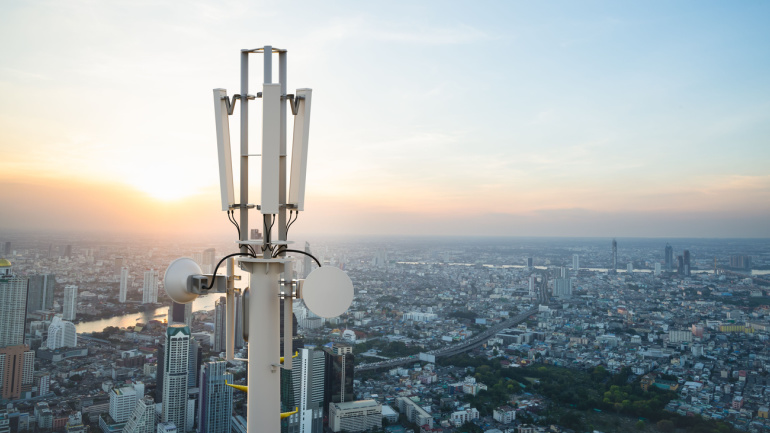Spain’s government is pumping €448 million into the upgrade of over 8,000 isolated 5G base stations, an initiative set to stimulate economic and civil activity while bridging the digital divide. Interestingly, the bulk of the funds are being allocated to lesser-known entities, including wholesale and retail fibre providers Lyntia and Avatel. The rollout is part of Spain’s broader mission of delivering ultrafast broadband coverage by 2025, concurrently ramping up public access to high-speed connections. Furthermore, a €10 million fund invites proposals for innovative 5G projects in sectors such as agriculture and connected vehicles.
Belgian telecoms group Proximus’ recent investment catapults it deep into the global Communication Platform-as-a-Service (CPaaS) sphere. By acquiring a majority stake in India’s Route Mobile, the company fortifies its ambitions of becoming a global industry leader. This move isn’t just about ownership, but a mutually beneficial partnership, expected to drive substantial value and facilitate significant market expansion.
The GSMA and the European Space Agency are planning a collaboration to further integrate satellite and cellular technologies. This new alliance promises to bring non-terrestrial networking (NTN) into the market mainstream, a significant step, previously signaled by NTN’s inclusion in the 3GPP’s 5G standards. With eyes set for integration in future 6G networks, this collaborative endeavor aims to advance unique solutions for businesses and consumers. It’s an astounding opportunity that potentially could yield a high-growth market worth $18 billion between 2024 and 2031.
Speculations are intensifying concerning a potential merge between Dish Network and EchoStar. Recent developments fuel questions about the strategic motivations behind this corporate ‘re-marriage’. Despite Dish’s financial burdens and shrinking customer base, it’s making strides in mobile network expansion, while EchoStar’s strong financial standing and plans for a global 5G network radiate growth.
At the recent “5G Business Dialogue” during MWC Shanghai 2023, industry champions pondered on the positive impact of 5G adoption four years after its commercial introduction. Notably, it now makes up 10% of total revenue for China’s three providers. Furthermore, Enhanced Mobile Broadband (eMBB) services are noting considerable success due to swift user migration and industrial digitization. Innovation strides such as the Naked-eye 3D and 5G New Calling reflect the telecom sector’s future. However, with increasing Pan-Asian 5G uptake, the dialogue also ventured into the idea of “5.5G”, envisioned as a natural progression from its precursor. It’s intriguing to anticipate further transformative innovations within this industry.
Ericsson plans a €155 million investment for a smart manufacturing hub in Tallinn, Estonia. BT will reduce its workforce by 1,100 at Adastral Park while investing in modernization. Cellnex acquires full control of OnTower Poland, expanding its tower portfolio. Unicon launches an enhanced partner program for resellers in end-user computing. NEC introduces a generative AI service to drive business transformation.
stra, the Australian telecommunications company, has announced a new partnership with SpaceX’s Starlink, a Low Earth Orbit (LEO) satellite constellation. The collaboration aims to provide home phone and broadband services to customers in remote areas. Telstra’s satellite connectivity services will offer expanded options for businesses and consumers who previously had limited access to broadband, potentially bringing them online for the first time.
The Ethiopian government is once again inviting global operators to bid for its lucrative telecom license, stirring intrigue within the global telecom community. Will the Ethiopian Communications Authority’s (ECA) revamp strategy succeed this time, especially considering the previous subpar offers? While this market opportunity boasts a burgeoning economy and promising regulatory developments, interested parties face rigorous competition and potential operation setbacks.
In this dynamic digital era, telecom stakeholders are exploring innovative ways to connect people, homes, industries with machines and vehicles. Huawei’s Li Peng emphasizes creating value with 5G, citing its ability to deliver higher traffic, extensive connectivity, reliable latency, and multifaceted cloud services.
Industry expert Jonny Parkinson illuminates the landscape of telecommunications mergers and acquisitions amidst economic shake-ups and global tensions. Despite a dip in deal-making activity, recent predictions suggest a strategic surge in the back half of 2023. Drawing upon the resilience of telecom firms in the face of change, Parkinson underscores the potential offered by technologies like AI and cloud computing to maintain competitiveness, even encouraging alternative structuring concepts and careful due diligence for prospective M&A targets.













